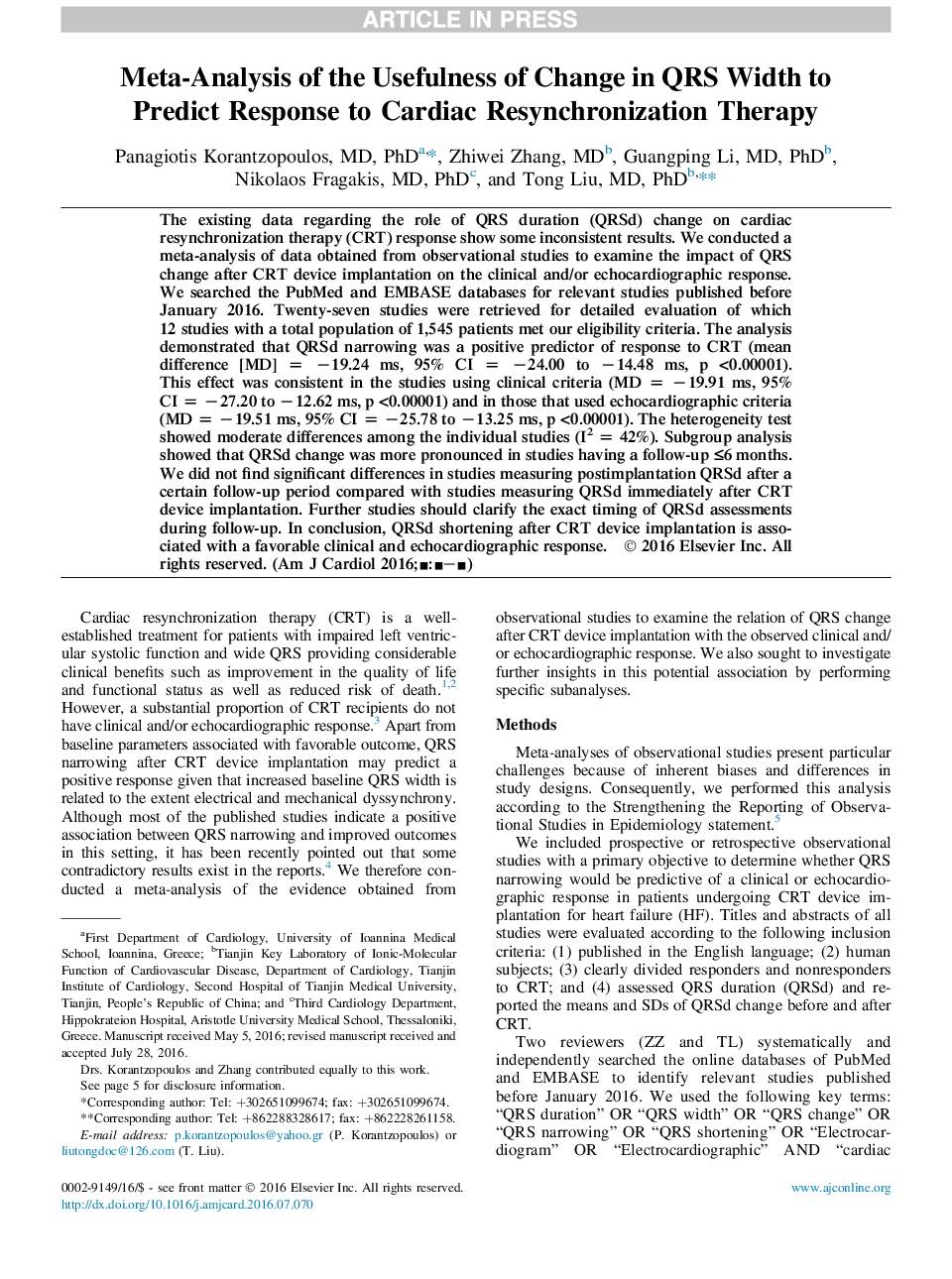| Article ID | Journal | Published Year | Pages | File Type |
|---|---|---|---|---|
| 5595340 | The American Journal of Cardiology | 2016 | 6 Pages |
Abstract
The existing data regarding the role of QRS duration (QRSd) change on cardiac resynchronization therapy (CRT) response show some inconsistent results. We conducted a meta-analysis of data obtained from observational studies to examine the impact of QRS change after CRT device implantation on the clinical and/or echocardiographic response. We searched the PubMed and EMBASE databases for relevant studies published before January 2016. Twenty-seven studies were retrieved for detailed evaluation of which 12 studies with a total population of 1,545 patients met our eligibility criteria. The analysis demonstrated that QRSd narrowing was a positive predictor of response to CRT (mean difference [MD] = â19.24 ms, 95% CI = â24.00 to â14.48 ms, p <0.00001). This effect was consistent in the studies using clinical criteria (MD = â19.91 ms, 95% CI = â27.20 to â12.62 ms, p <0.00001) and in those that used echocardiographic criteria (MD = â19.51 ms, 95% CI = â25.78 to â13.25 ms, p <0.00001). The heterogeneity test showed moderate differences among the individual studies (I2 = 42%). Subgroup analysis showed that QRSd change was more pronounced in studies having a follow-up â¤6 months. We did not find significant differences in studies measuring postimplantation QRSd after a certain follow-up period compared with studies measuring QRSd immediately after CRT device implantation. Further studies should clarify the exact timing of QRSd assessments during follow-up. In conclusion, QRSd shortening after CRT device implantation is associated with a favorable clinical and echocardiographic response.
Related Topics
Health Sciences
Medicine and Dentistry
Cardiology and Cardiovascular Medicine
Authors
Panagiotis MD, PhD, Zhiwei MD, Guangping MD, PhD, Nikolaos MD, PhD, Tong MD, PhD,
